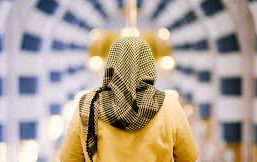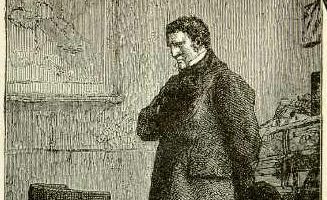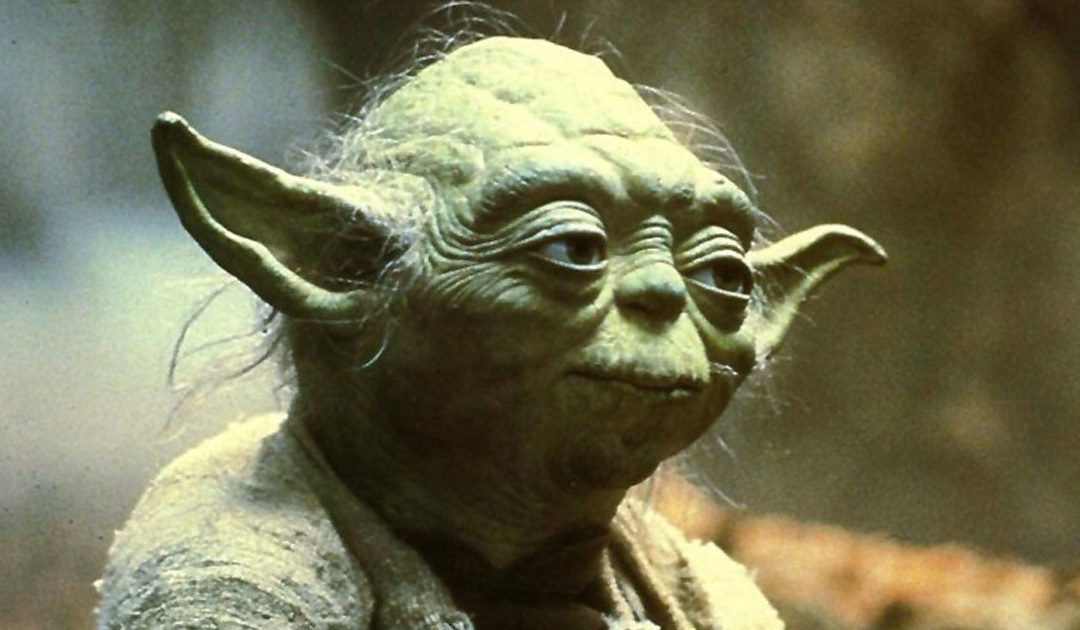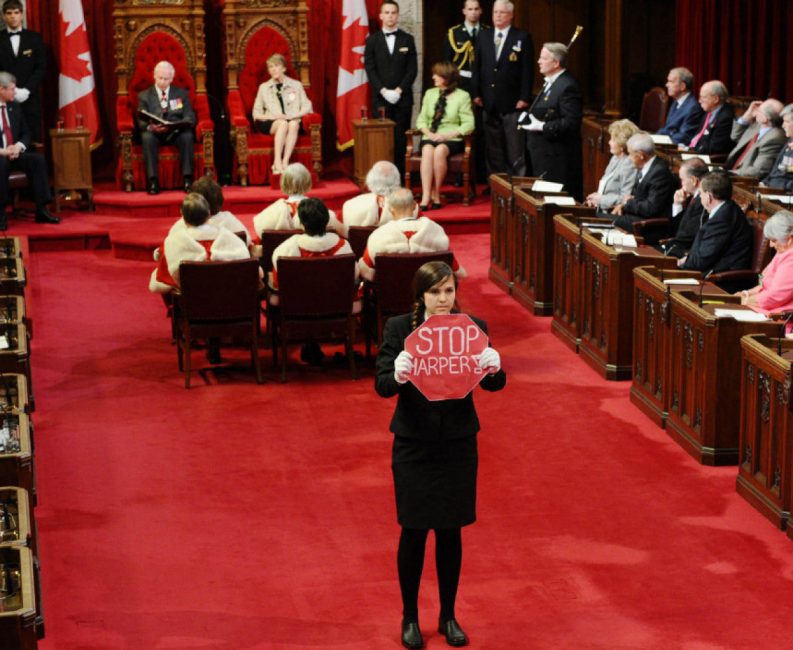This is a presentation I gave at a conference on the relationship between Islam and the “West” in 2007. I generally don’t like this characterization because, as a very astute observer once pointed out, Islam is a non-geographically constrained faith whereas the “West” is. Some of the references are specific to 2007 like the National Post article I reference, but I am sure there are current analogies you can invoke.
“Fear is the path to the dark side. Fear leads to anger. Anger leads to hate. Hate leads to suffering.”
The title I gave to this talk invokes the wisdom of Master Yoda, probably the shortest and greenest philosopher in history. Yoda refers to fear as the first step on the path of personal darkness. It is important to note that in the context of the Star Wars mythology, the dark side imbues a person with power – just as much or even more than the good side of the Force. That power is, itself, one of the dangers of the Dark Side. To borrow a theme from another popular culture movie phenomenon, the Matrix (Reloaded), Neo asks the Oracle what the Merovingian wants. To this she responds, ‘what all men with power want: More power.”
I will argue in the next 25 minutes that fear has become the dominant theme in regarding Islam and Muslims in recent years. It has become so, not because it was inevitable, not because it could not have been otherwise, but because men with power wanted more power and fear was the most certain way of achieving that goal. And when playing the fear card succeeded, it became self-perpetuating because of the seductiveness of power. Whereas most of my argument will highlight international events, we are hardly immune from this phenomenon.
It can be argued that fear is the most primitive of human emotions. Fear, more than any other emotion can be credited with the very survival of the human race. Fear is what got us here, so to speak. For imagine how many humans would have survived if the first encounter between man and deadly beast had not imbued that first man with intense fear.
But if fear improved our chances of survival, it is altogether another emotion that gave us progress. Courage, taking risks, is the human emotion that truly got us here, so to speak. For imagine where we would be today if Columbus and company had not braved the oceans to reach the shores of this continent. (I have some friends near Caledonia who feel that everyone would have been better off if Columbus had never reached the shores of this continent, but that is an altogether different discussion.)
Where would human beings be if the first human being did not go home after his encounter with the first beast and thought of ways to overcome that fear. We are here, in one sense, because someone decided that through creativity, preparation and planning, that beast could be overcome. Someone was brave enough and so as a result we are not all vegetarian – so to speak.
Let’s take this a step further and say that our real survival depends not on fear alone or courage alone, but on the balance of the two. Or at least on the transformation of fear into understanding and balancing that with courage. As human beings were liberated from that all-consuming fear of others, we began to understand the world around us and we understood that we need not kill every animal in order to guarantee our own survival. In fact if we did that, we would be doomed. We began to understand that in order for us to truly survive and prosper, there has to be balance and a measure of harmony in the universe. Fear transformed by understanding became respect and mutual interdependence.
I submit that things are no different today. The only thing that has changed is the source of our anxieties and our fears and the ways in which we can transform fear into respect. Unfortunately we live in a world in which many people gain much by peddling fear. Some earn a living out of this, others gain stature and power while yet others derive an internal satisfaction from others being as afraid as they are. “Misery”, as the saying goes, “loves company”.
In the post-9/11 world, and for the time being that remains an appropriate appellation of our world, fear has been the dominant theme in viewing the relationship between Islam and us. The devices that have been used to maintain that theme have been many. They have ranged from being subtle, pseudo-scholarly and superficially objective to having the subtlety of a sledgehammer.
And so for example, we read seemingly objective newspaper reports on how Muslim immigrants to Denmark represent only 3% of the general population, but 20% of the prison population and when one considers violent crime, the proportion is even higher. The conclusion is never explicitly stated but, of course, the implication is that if you allow Muslim immigration into Canada to go unchecked you can expect to be knifed or raped or meet an otherwise violent end.
Some of these arguments are well crafted and require intimate knowledge of the specific situation, the veracity of the data presented and the methodology with which it was collected in order to formulate an opinion. Much of this is beyond the scope of the average reader. In the specific case of the National Post article on Muslim immigrants in Denmark, a rebuttal was published by two Danish MPs, one whom used to be the Minister of social services.
But enough of the subtleties. Surely when we review the events of the last few years there is obviously something to fear from Muslims. Starting with the destruction of the World Trade Center, through the storm over the now infamous “Danish Cartoons”, the little unpleasantness with the Pope’s Regensburg speech and the unspeakable carnage in Iraq and the generally angry appearance of the Muslim population that appears on our television screens and newspaper pages whenever something ostensibly offends their sensibilities. Surely not all such angry and violent people are extremists. Surely there must be something that makes Muslims an angry, violent lot against whom we have to guard.
Surely I cannot argue, as I did at the beginning, that fear of Islam and Muslims is merely a construct used by rich and powerful men to maintain their power. But I am arguing just that.
Let us consider the events of the twentieth century. Most countries considered Muslim laboured under direct foreign control and occupation whether it was the countries of the Middle East and North Africa like Egypt, Sudan and Algeria or Asian countries like Indonesia and what is now Pakistan. Despite this direct foreign control, and a struggle for independence that was violent at times, the dominant theme in the relationship between the Muslim and non-Muslim worlds was ‘if you leave us be, we will get along well.’ This is reflected strongly in the intellectual and cultural life of these societies. In Egypt, for example, the intellectual discourse was all about ‘what is wrong with us and why can’t we get ahead’. Foreign control figured only in a minor capacity. I can cite a number of authors, like Ahmad Shawqy the pre-eminent poet of modern Arabic or the “Shikwa” and its “Jawab” by Sir Muhammad Iqbal, the leading Indian Muslim thinker of the twentieth century. The Shikwa is a “complaint” to God about the status of Muslims while its “Jawab”, the answer to it, address purely internal factors.
The latter half of the twentieth century saw a progressive shift in the Muslim world from introspective to blaming external factors. There was no longer direct foreign control, but it would be naïve to think there was no proxy control. The powers that be at the time, the United States and the Western bloc and the Soviet Union and the Eastern bloc felt enough fear of each other that they sought as much control over the remaining nations as they could muster. And so it was that the United States and the Soviet Union never once came to blows, but they armed, encouraged and perpetuated proxy conflicts elsewhere.
In the Muslim world, this meant tremendous suffering. None of that suffering is seen or appreciated by us. When I have spoken to other audiences I have sought to minimize the argument I am about to make. But this is an academic gathering and so I will be blunt.
We, ladies and gentlemen, have blood on our hands. We are not the source of all evil in the world, but we have blood on our hands. Unlike Lady Macbeth, however, who saw blood even when there was none, we persist in denying any even when our hands are drenched. Let me give concrete examples.
In the struggle for independence, by 1960 more than one million Algerians had died before France finally relinquished control. Fast forward to 1991 and the military junta overthrowing the democratic choice of Algerians and precipitating a conflict in which several hundred thousand Algerian have perished. This junta was backed by every Western nation. Move a little east to Tunisia where the advent of the regime of Ben Ali in 1987 was marked by severe repression, imprisonment and torture that still continue. The regime enjoys wide based support in the west. Move a little back in time and little more eastward and we see the former US Sercretary of Defense Donald Rumsfeld smiling and shaking hands with Saddam Hussein as the United States armed Hussein to the teeth to fight with Islamic Iran. Why did we arm him? Because we were afraid.
Let’s fast forward a little into the post-9/11 era. The estimates of civilian deaths in the war in Afghanistan that followed September 11, 2001 are vague but conservatively placed at 7,000-10,000 people. The number of civilians who died in the aerial bombardment of Iraq is unknown but is estimated in the tens of thousands. But we do not know for sure. Why do we not know for sure, because as Gen Tommy Franks of US Central Command says, “we do not do body counts.”
Once place where we did do body counts is New York. We know that 2973 people died on September 11, 2001. Not approximately 3000 people, not two thousand nine hundred and change, but an exact 2973. We know their names. We have seen their faces. We know their stories. And that is as it should be, for every human life is sacred. But for the tens of thousands of innocent civilians who have died in the aftermath, there is nothing. There are no names. There aren’t even numbers. There are no stories. There are no memorials. There is no guilt, no responsibility and no accountability. Because apparently some lives are more sacred than others.
Let’s go back in time a little. July 11, 1995 was a peculiar date. In 9/11 parlance we are at time -5 years 9 month to the day. On July 11, 1995 8,000 people died at Srebrenica in Bosnia. The men and boys were separated from the women and the latter let go. The 8,000 Muslims were executed.
How etched is that incident in our collective memory? American commentators have argued that proximity is an important factor. European commentators have argued that Bosnia is closer to every other country in Europe than is America. Nor is language or culture the explanation, for European nations have bound their fates to each other despite myriad languages and cultures The numbers are staggering – almost three time as many dead in Srebrenica alone than in New York. Nor were the means of death any less barbaric. And so it is not geographic proximity, nor the scale nor the nature of the disaster that desensitize us. It is something else.
This something else is what drives the violent minority in the Muslim world to be violent and a substantial majority to be resentful. We accuse the Muslim world of suffering from an acute case of victim mentality and there is truth to that. But surely we suffer from an even more severe case of the same. For in the last 20 or thirty years we have been much more of a threat to the Muslim world than they have been to us. If one side has cause to fear from the other, it is not us that ought to fear them, but the reverse.
So why do we continue to fear them? Let’s be honest, how could we be convinced to support the invasion of Afghanistan or Iraq or sanctions against Iran or isolating Syria if we were not afraid. And if we let the numbers alone speak, that would not be sufficient and so there has to be an industry, a campaign to orchestrate that fear. Otherwise those who have plans for a New American Century or other such schemes could not muster the support of their compatriots or that of world opinion.
Let me come to a conclusion and retract some of my claims a little so that we may have time for a discussion. There is something to fear in the Muslim world today – it would be foolish to deny that altogether. However, it would be wrong to think of that danger as inherent to Islam or Muslims and neglect the events of the last 30 years – as seen by Muslims. For if we ascribe the source of our fear to Islam itself, the only solution is to create a world without Islam and that is not possible, at least not without great suffering. If we are to transform our fear, if not into respect, then at least, into mutual toleration, we have to understand how others perceive the world. At the moment, we see it in an entirely different way from the Muslim world.
There is a beautiful verse in the Qur’an that says, ‘kindness is in no measure equal to cruelty: Be kind and generous and you will find that even your harshest enemy will become your closest friend.’ I like this verse because it reminds me that there is a fundamental goodness within each human being and if one overcomes one’s fear to extend acts of kindness and generosity, then the reward may be the very extinction of fear.
I look forward to our discussion.
Thank you.





